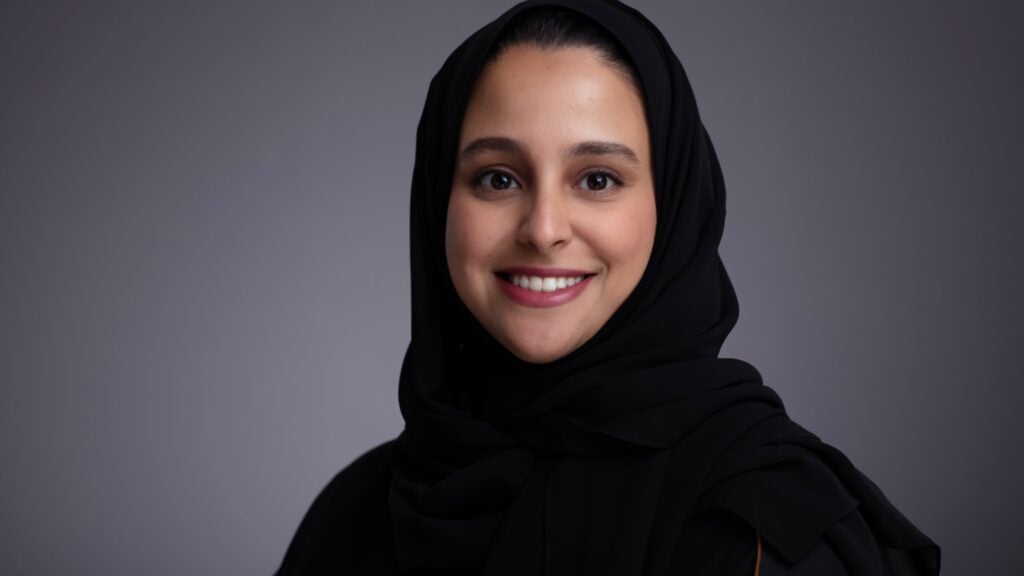Reclaiming Narratives: How Dr. Maryam Alsada is Transforming How We Study Gulf Women’s Histories

As an alumna and Postdoctoral Fellow at Georgetown University in Qatar (GU-Q), Dr. Maryam Mohamed Alsada is charting a course at the intersection of rigorous academic inquiry and grounded community engagement. Her summer course, Documenting Gulf Women invites students to critically examine the politics of knowledge production—asking how the lives of Gulf women can be documented through more ethical, culturally grounded, and imaginative methodologies.
For rising senior Ftaim Alqahtani, who took the course for her minor in history, it was a chance to connect to discussions that traditionally center Western women’s experiences. “I fell in love with history through taking classes at GU-Q, but I had felt excluded from theoretical discussions about womanhood,” said Ftaim, adding: “Taking this course from someone who understands the unique experiences of women in the region far exceeded my expectations.”
Designed as a seminar with immersive, site-based learning, Documenting Gulf Women integrates literary texts, historical scholarship, visual art, and film with field visits and guest speakers.
“I have ten students in this class—all women—who are eager to explore the diverse ways Gulf women are documented across academic and non-academic contexts,” said Maryam during a class visit to Mathaf: Arab Museum of Modern Art for a guided tour of the “Sites of Imagination” exhibition by pioneering Qatari artist Wafa Al-Hamed. “Al-Hamed is both the subject and the author of representation,” Dr. Alsada noted. “Her work prompts students to ask: Who documents? For whom? And with what consequences?”
Rooted in Dr. Alsada’s doctoral research investigating Gulf women’s lived experiences during the pearl diving and early oil eras, the course teaches students to draw on oral histories, archival materials, and embodied memory to offer nuanced readings of Gulf history from the ground up. It is a methodology she employed for her University College London dissertation, titled “The Lives of Girls and Women in Bahrain and Qatar,” which explores women’s agency and social labor across shifting political and economic landscapes.
“Gulf women have always had voices,” said Dr. Alsada. “Our task as scholars is to interrogate the structures that have filtered, silenced, or misrepresented them—and to find methodologies that center their ways of knowing.”
The seminar culminated in a student showcase of original documentation projects. Drawing on both primary and secondary sources, students presented creative works that captured the lives of Gulf women through oral histories, mini-podcasts, visual storytelling, and curated exhibits. Each project engaged critically with the politics of visibility, authorship, and historical preservation.
Ftaim’s project examined the contributions of her grandmother, Asma al-Neama, to the development of Qatar’s educational system. “I learned that academic work can begin with love and still be rigorous,” she said. “The course taught me how historical recovery can be a form of care, particularly when conducted using oral histories and feminist methods that prioritise lived experience. It showed how storytelling can resist erasure and question which voices are considered worthy of documentation.”
Ftaim’s insight was partially due to Dr. Alsada’s decision to connect the course to the Engelhard Project for Connecting Life and Learning, a Georgetown initiative that integrates student well-being and reflective practice into academic study. Dr. Amy Walker, Psychological Counselor and Inclusion Programming Lead at GU-Q, led a dedicated session on the ethics of documentation and the role of care in scholarly inquiry. “Rethinking knowledge structures in academia is not only a theoretical exercise,” said Dr. Alsada. “It offers students a way to clarify their positionality—not just as scholars, but as members of multiple, intersecting communities. In recognizing where they stand, they gain the clarity and confidence to produce knowledge that is both ethically grounded and personally meaningful.”
The course also connected with the community through the nationwide Qatar Reads’ One Book, One Doha campaign, engaging with a pre-publication English translation of Maqāmat al-Ḥarīrī, an 11th-century Arabic classic. The class read and critiqued excerpts of the text, and then attended a public panel hosted at Qatar National Library, where panelist Dr. Alsada asked the public to practice reading gender in Arab texts such as the Maqāmat through a critical and context-sensitive lens. “How can we retrain ourselves to hear the feminine differently—not as missing, but as withheld, reserved, or structurally deferred?” She asked the audience, adding: “In this reframing lies the possibility of another kind of listening—one that honors silence not as lack, but as a form of presence.”
It was a lesson her students took to heart. “Women’s leadership is frequently erased from historical records, even within families,” said Ftaim, “but they are there, and their stories are worth telling.”
As an alumna, anthropologist, and educator, Dr. Maryam Alsada embodies Georgetown’s commitment to academic excellence and social responsibility. Her work, informed by her own educational journey, not only highlights underrepresented narratives but empowers students to become keepers of history in their own right.
A firm believer in student-centered learning and place-based pedagogy, Dr. Alsada sees teaching as a form of both scholarship and stewardship. “I want my students to feel rooted in their histories—not just as observers, but as participants in shaping how those histories are told.”